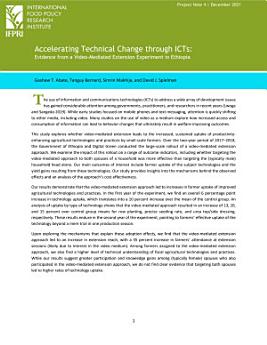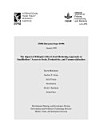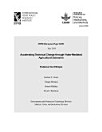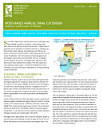Accelerating technical change through ICTs: Evidence from a video-mediated extension experiment in Ethiopia
Par šo e-grāmatu
This study explores whether video-mediated extension leads to the increased, sustained uptake of productivity-enhancing agricultural technologies and practices by small-scale farmers. Over the two-year period of 2017–2018, the Government of Ethiopia and Digital Green conducted the large-scale rollout of a video-mediated extension approach. We examine the impact of this rollout on a range of outcome indicators, including whether targeting the video-mediated approach to both spouses of a household was more effective than targeting the (typically male) household head alone. Our main outcomes of interest include farmer uptake of the subject technologies and the yield gains resulting from these technologies. Our study provides insights into the mechanisms behind the observed effects and an analysis of the approach’s cost effectiveness.
Our results demonstrate that the video-mediated extension approach led to increases in farmer uptake of improved agricultural technologies and practices. In the first year of the experiment, we find an overall 6 percentage point increase in technology uptake, which translates into a 10 percent increase over the mean of the control group. An analysis of uptake by type of technology shows that the video-mediated approach resulted in an increase of 13, 20, and 15 percent over control group means for row planting, precise seeding rate, and urea top/side dressing, respectively. These results endure in the second year of the experiment, pointing to farmers’ effective uptake of the technology beyond a mere trial in one production season.
Upon exploring the mechanisms that explain these adoption effects, we find that the video-mediated extension approach led to an increase in extension reach, with a 35 percent increase in farmers’ attendance at extension sessions (likely due to interest in the video medium). Among farmers assigned to the video-mediated extension approach, we also find a higher level of technical understanding of focal agricultural technologies and practices. While our results suggest greater participation and knowledge gains among (typically female) spouses who also participated in the video-mediated extension approach, we do not find clear evidence that targeting both spouses led to higher rates of technology uptake.








